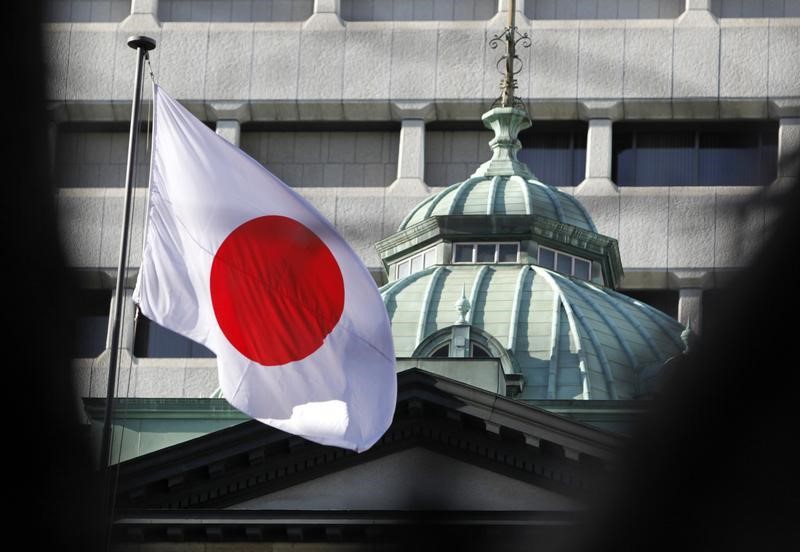(Bloomberg) -- The Bank of Japan left its policy unchanged as it cut its inflation outlook once again, underscoring how far away its price target is and how few options the central bank has for drawing closer.
The BOJ maintained its yield curve-control program and asset purchases, the central bank said in a statement Wednesday, a result predicted by all but one of 50 economists surveyed by Bloomberg. The bank lowered its inflation forecast for a fourth consecutive time in its quarterly outlook report.
With the European Central Bank meeting on Thursday and the Federal Reserve next week, the gap between the BOJ and its global peers keeps widening. While the Fed may hit pause soon, both it and ECB are seeking to return to pre-crisis policies, giving them more room to respond in the event of another shock or downturn.
“The BOJ is firmly sticking with its stimulus,” Takeshi Minami, chief Japan economist at Norinchukin Research Institute, said ahead of the meeting. “While the Fed is being cautious, any bullish statement by the BOJ could cause the yen to strengthen.”
In its outlook report, the BOJ cut its inflation forecast for the fiscal year starting in April to 0.9 percent from 1.4 percent.
It raised its projection for economic growth for next fiscal year to 0.9 percent. The International Monetary Fund said this week its sees the Japanese economy growing faster than previously expected, citing additional fiscal support.
Many economists expect Japan’s core inflation figure to fall below zero sometime this year, thanks to a plunge in oil prices, cuts to cell phone fees and a government initiative to provide free childhood education. Yet few expect the BOJ to add to its stimulus. Most of them think the BOJ is looking for a chance to slowly normalize policy.
With inflation sinking and risks rising, BOJ watchers will be eager to hear from Governor Haruhiko Kuroda during a news conference scheduled for 3:30 p.m. Tokyo time.
Kuroda will likely again maintain that underlying momentum toward the BOJ’s 2 percent target remains intact. Japan’s core inflation slipped to 0.7 percent in December.
Kuroda’s views on external risks -- slowing growth in China and elsewhere, trade tensions, financial market turmoil -- will also be in focus. Manufacturer Nidec Corp. became one of the first major Japanese companies to ring an alarm about the impact of the U.S.-China trade war, slashing its profit outlook last week due to plunging orders from China.
Another concern for the BOJ is the yen, which touched a nine-month high against the dollar this month. Some see it gaining further strength this year, which would work against the BOJ’s efforts to stoke growth and inflation.
